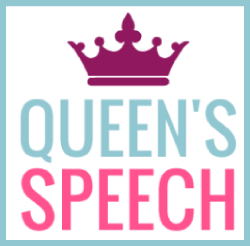Most of you reading this blog are Speech-Language Pathologists.
So this should be an easy question right?
Wrong.
Lately I have been receiving IEPs from other SLPs that appear to have difficulty understanding what a "baseline" is for a goal. I too was a guilty party, until I did some research in my first year as an SLP. Now we may have differing opinions on the matter, but this is how I understand it:
- The dictionary definition which is simple states, "A minimum or starting point used for comparisons." Sounds easy right?
- Then ASHA states, "The Baseline Data are used to determine the quantitative level for the indicators of success and indicates how much change will occur if the desire outcome is achieved."(here)
- Let's talk about that word quantitative for a minute, defined as, "of, relating to, or involving the measurement of quantity or amount". Further explained as, "type of information that can be counted or expressed numerically." (examples: an exact count, or number).
Okay, to summarize a baseline is a: starting point, current quantitative level/number, indicator of how much change to expect.
Lately IEPs I have been receiving have baselines stated as such, "below age level in English and Spanish," or this one, "low intelligibility due to multiple misarticulations".
Here lies the problem! With goals we want to know to what extent is the student below age level? What percentage of intelligibility? What kind of misarticulations? Without this quantitative information SLPS cannot know or state to what level of accuracy a student can actually achieve right now, how much we can expect them to improve within a time period, and what level of mastery to expect.
How do we find this quantitative information? It's all about the way we evaluate and gather data and usually it's right in front of us, we just have to find it and write it the right way!
Example: low in English and Spanish
- Look at your assessment results, yes the student is low in both languages, but what specific areas or subtests.
- Once you have a specific area (i.e. morphology/syntax) you can break it down a step further.
- What specific area within morphology? (i.e. plurals)
- Now gather baseline, attempt some trials with the student (or count how many correct/incorrect on the test). Determine what level they can achieve right now, without any help or with help (just remember to note that in your baseline)
- What did they number or % did they achieve? (i.e. 2/10 trials or 20% accuracy, with regular plurals in isolation, with picture cue) That's your baseline!
TIP: I always try to write my baselines and goals by specific number of trials, across a number of set sessions (e.g. 8/10 trials across 3 speech sessions). Keeps it simple and with percentages, we don't really know how many times, unless we discuss it at the meeting with parent (e.g. Oh, Sally got 80% accuracy with WH questions. Oh well how many? 4/5? That's not very many. Across how many sessions? Was it one day? That's not very consistent.) . If the number of trials is already in the goal you have something concrete to shoot for.
I try to remember to think of baselines as: the student's current level of strength in their weakest area (does that makes sense?)
How do you write your baselines and goals? I would love to hear from you!
share this on » |
{Facebook} |
{Twitter} |
{Pinterest} |










Hi Rachel, my name is Christine and I'm a speech therapy student:) Just a few questions on baseline assessment:
ReplyDelete1. Can we use the same items in baseline assessment in actual treatment? Does that match the purpose of 'process tracking'?
2. As far as I know, only untrained items can be used in generalisation probing, but what about those used in baseline assessment before? Can they be used for probing again?
DR EMU WHO HELP PEOPLE IN ANY TYPE OF LOTTERY NUMBERS
ReplyDeleteIt is a very hard situation when playing the lottery and never won, or keep winning low fund not up to 100 bucks, i have been a victim of such a tough life, the biggest fund i have ever won was 100 bucks, and i have been playing lottery for almost 12 years now, things suddenly change the moment i came across a secret online, a testimony of a spell caster called dr emu, who help people in any type of lottery numbers, i was not easily convinced, but i decided to give try, now i am a proud lottery winner with the help of dr emu, i won $1,000.0000.00 and i am making this known to every one out there who have been trying all day to win the lottery, believe me this is the only way to win the lottery.
Dr Emu can also help you fix this issues
(1)Ex back.
(2)Herbal cure & Spiritual healing.
(3)You want to be promoted in your office.
(4)Pregnancy spell.
(5)Win a court case.
Contact him on email Emutemple@gmail.com
What’s app +2347012841542
Website Https://emutemple.wordpress.com/
Https://web.facebook.com/Emu-Temple-104891335203341